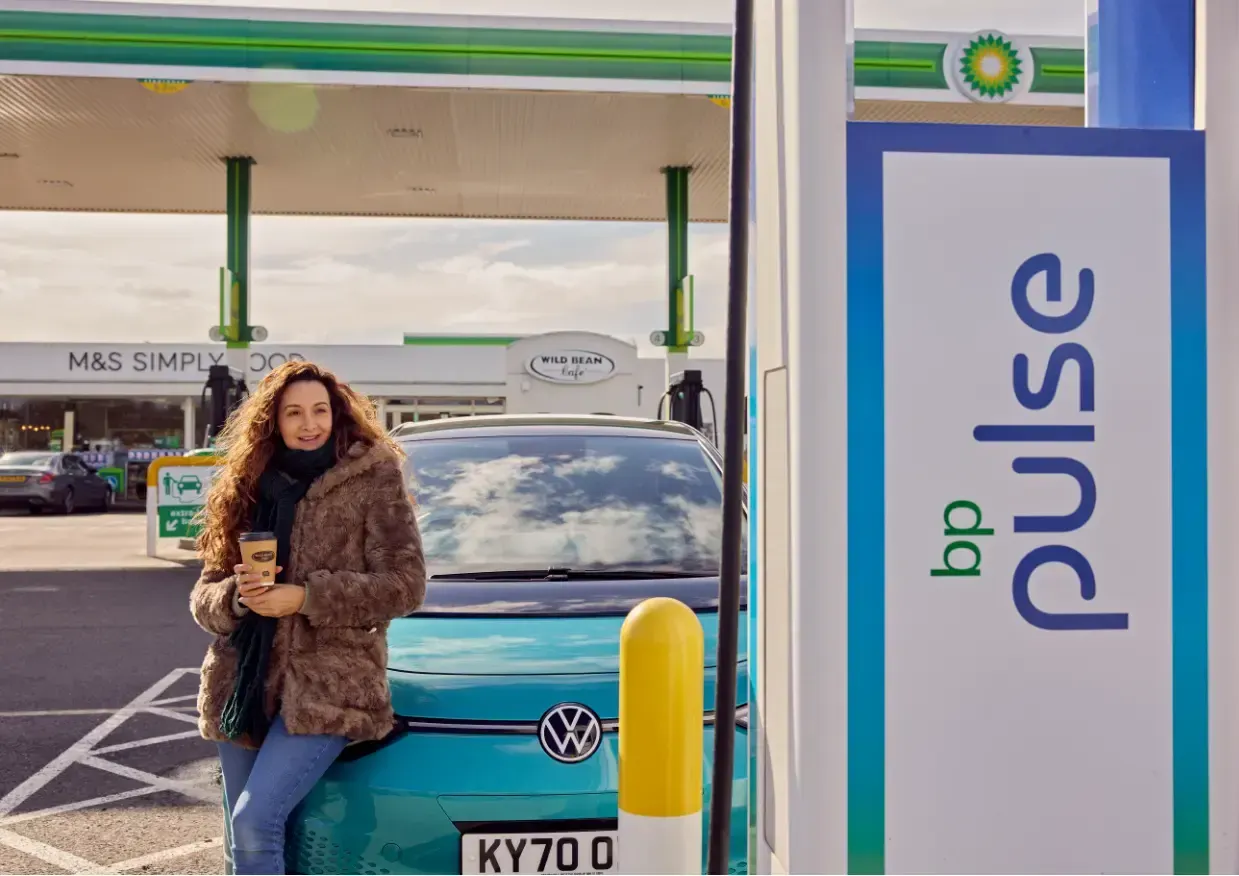A handy guide to the two terms—and what EV drivers need to know
When you get your first EV, we know there can be a lot of new words to learn. At bp pulse, we want to help turn jargon into simple, helpful facts. In this article we’ll go through kW and kWh and what they mean for you, so you can feel confident of making the right choices whether you’re in the showroom or on the road.
kW describes power in and power out
kW stands for kilowatt—a unit of power, which represents one thousand watts. In the EV world, kilowatts are actually used in reference two different things—cars and chargers. That’s because kW is a measure of both the rate of power output and power transfer.
When kW applies to cars, it’s a measure of the amount of power generated by the motor. In other words, the number of kW indicates how powerful the vehicle is, and gives an indication of what to expect from its speed acceleration. Generally, more kWs means more get-up-and-go. That might be an important consideration when choosing the EV that’s right for you.
When you see a kilowatt rating on a charger, then it’s a measure of how quickly the charger is able to flow electricity into the battery of your car. So, a 150kW bp pulse charger will charge you up considerably faster than, say, a 7kW charger. However, this depends on your car too, because different EV models charge up at different speeds. Even the weather makes a difference—on hot or cold days, the charging speed may be a little slower.









